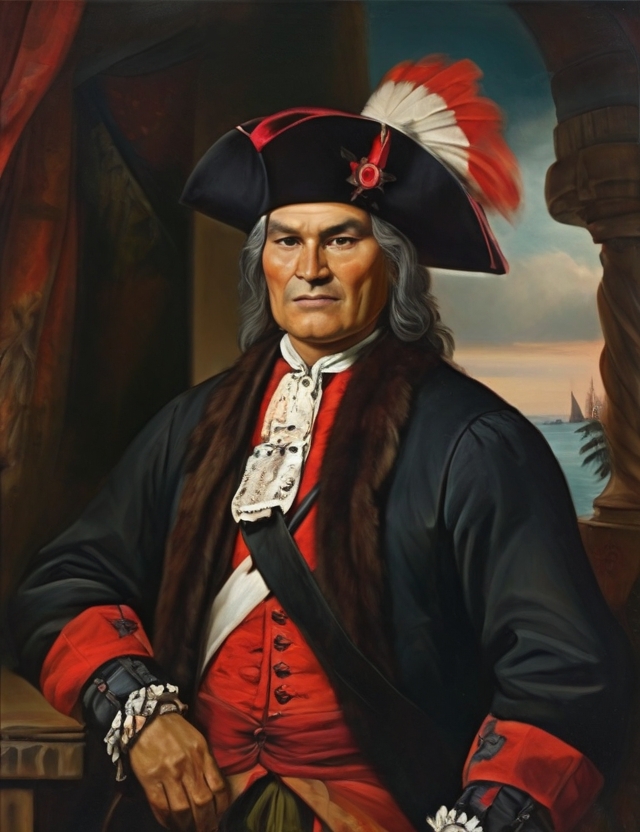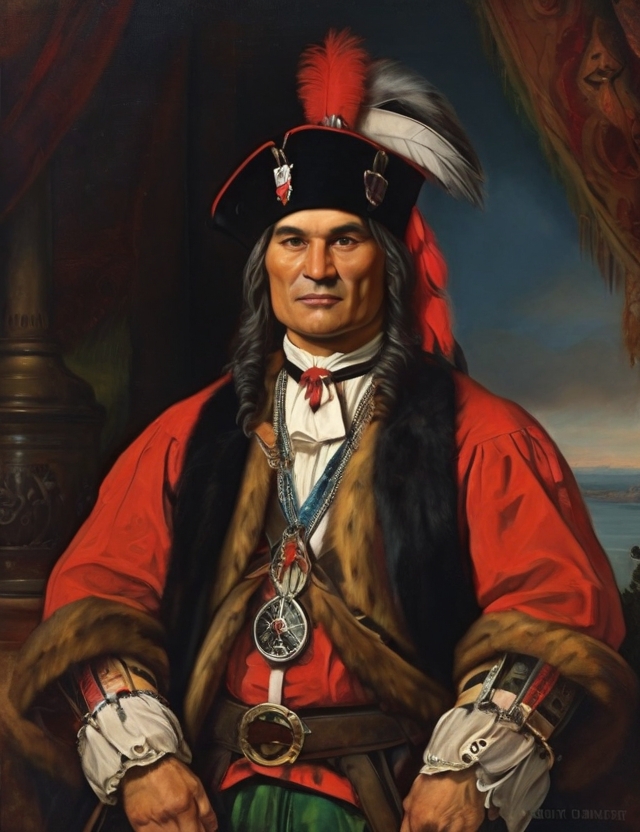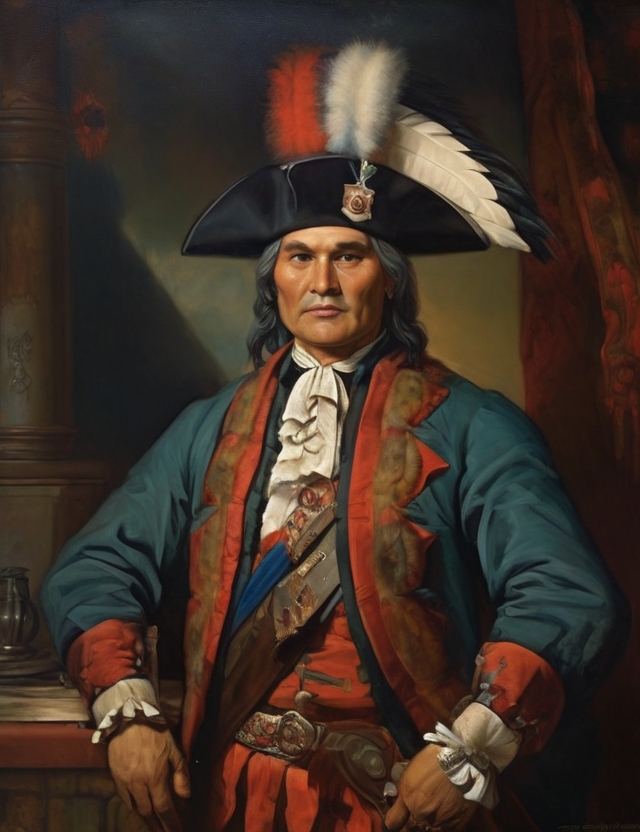
Joseph Brant’s influence during the American Revolution remains a compelling subject in historical discourse.
To comprehend this pivotal period, it is crucial to delve into Brant’s early life, his notable contributions throughout the revolution, and the enduring impact of his actions.
In his formative years, Joseph Brant emerged as a key figure, setting the stage for his later role in the American Revolution.
Joseph Brant’s Early Life
Born in 1743 in Ohio Country, Joseph Brant hailed from the Mohawk tribe within the Thirteen Colonies.
Initially named Thayendanegea, meaning “he places two bets,” he experienced a unique blend of Native American and European cultures in his early life.
Brant’s upbringing included exposure to Western education at an early age, shaping his perspectives and influencing his actions during the American Revolution.
This educational foundation played a pivotal role in molding Brant’s identity as a key historical figure.
- Read also: Unsung Heroes of the Revolutionary War
- Read also: John Hancock: A Revolutionary Figure in the American War

What Did Joseph Brant Do in the American Revolution?
In the throes of the American Revolution, Joseph Brant emerged as a pivotal figure by aligning himself with the British cause.
Renowned for his military prowess and diplomatic finesse, Brant assumed a leadership role, guiding Iroquois forces in staunch opposition to the American colonists.
His strategic acumen played a crucial role in influencing the course of pivotal battles during this tumultuous period.
Brant’s military proficiency was evident in his command of Iroquois forces, demonstrating a keen understanding of both guerrilla warfare and conventional tactics.
His alliances with various Native American tribes further underscored his diplomatic skills, as he sought to garner widespread support for the British cause.
Brant’s efforts transcended mere military engagement; he strategically forged connections, recognizing the importance of unity among Native American communities.
The impact of Joseph Brant’s leadership extended beyond the battlefield, leaving an indelible mark on the overall trajectory of the American Revolution.
His alliances contributed significantly to the British war effort, adding a layer of complexity to the conflict by involving various indigenous nations.
Brant’s ability to navigate the intricate web of alliances reflected not only his military acumen but also his astute diplomatic approach.
Is Joseph Brant a Patriot or Loyalist?
Determining Joseph Brant’s allegiance during the American Revolution proves intricate.
Although he fought alongside the British against the American colonists, labeling him strictly as a patriot or loyalist oversimplifies his complex motivations.
Brant’s actions were primarily driven by a commitment to safeguarding Native American interests and preserving indigenous lands.
To comprehend his allegiance, one must consider the intricate web of alliances and conflicts characterizing the era, transcending conventional categorizations as a patriot or loyalist.
Brant’s role is better understood within the nuanced context of the alliances and challenges that defined this pivotal period in history.

What Happened to Joseph Brant After the War?
Following the American Revolution, Joseph Brant, along with fellow Loyalists, sought sanctuary in British-controlled territories within Canada.
In the aftermath of the conflict, Brant persistently championed the rights of Native American peoples.
A pivotal figure in post-war negotiations, he played a crucial role in securing land agreements with the British government.
Brant’s focus extended beyond mere territorial considerations; he dedicated himself to preserving the cultural heritage of his people.
His post-war activities revolved around safeguarding the interests and traditions of the Native American communities, reflecting a steadfast commitment to their well-being.
As he navigated the complexities of post-war life, Joseph Brant remained a central figure in advocating for the rights and cultural continuity of the indigenous populations within the newly established Canadian territories.
Joseph Brant’s Legacy
Joseph Brant’s legacy encompasses a rich tapestry of achievements.
Revered for his prowess as a military leader, adept diplomacy, and unwavering advocacy for Native American rights, Brant has left an indelible mark on North American history.
His notable contributions during the American Revolution and subsequent endeavors to secure land and rights for his people stand as enduring testaments to his significance in shaping the course of events in the region.
Brant’s legacy resonates as a multifaceted narrative, reflecting his dynamic role in the historical fabric of North America.

- Read also: A Quiet Revolutionary: John Jay in Revolutionary War
- Read also: The Uncrowned Ranger: John Stark Revolutionary War
Conclusion
The life and actions of Joseph Brant amidst the American Revolution underscore the intricate nature of that historical period.
His leadership, alliances, and post-war advocacy remain compelling subjects of historical examination and discussion.
To grasp the broader dynamics of the American Revolution and its consequences for Native American communities, delving into the complexities of Joseph Brant’s legacy is imperative.
Studying his multifaceted role provides valuable insights into the nuanced and dynamic aspects of this pivotal historical era.
FAQs
Joseph Brant’s leadership and diplomatic skills influenced the outcomes of key battles during the American Revolution, as he secured support from various Native American tribes for the British cause.
Joseph Brant’s legacy is significant due to his role as a military leader, diplomat, and advocate for the rights of Native American communities during a pivotal period in North American history.


